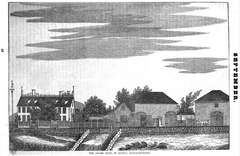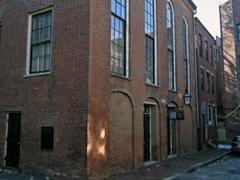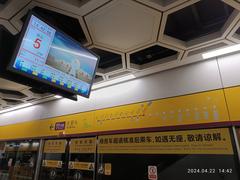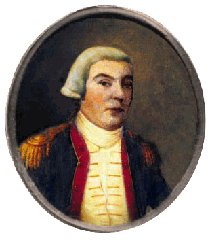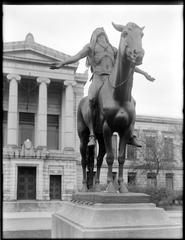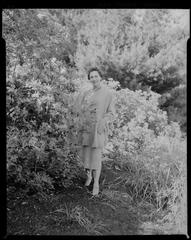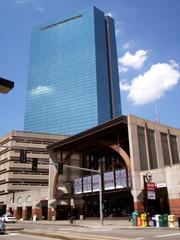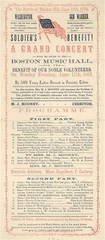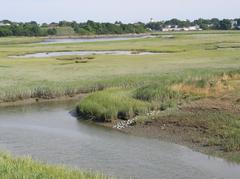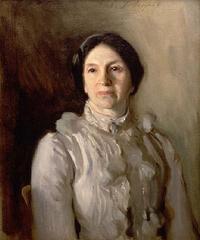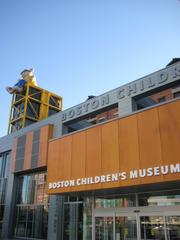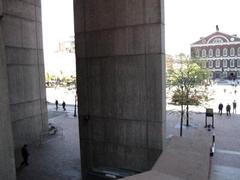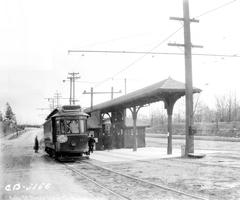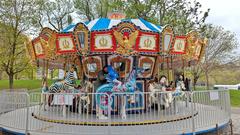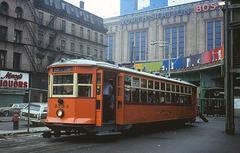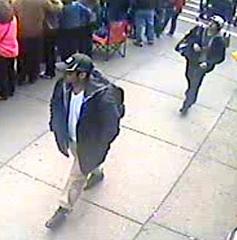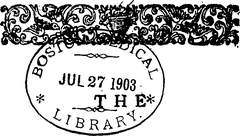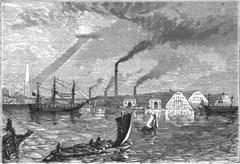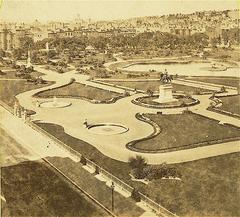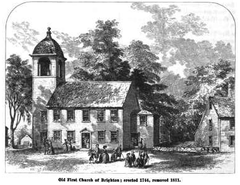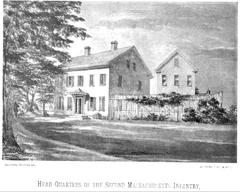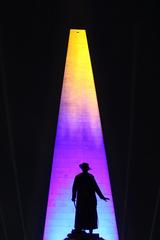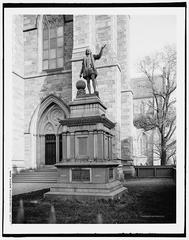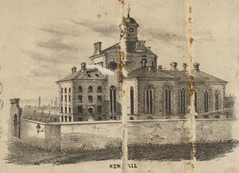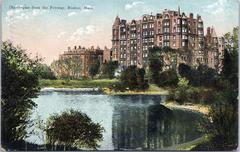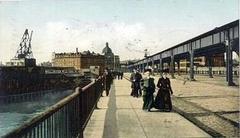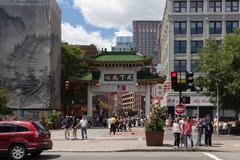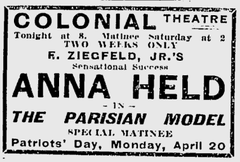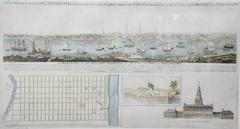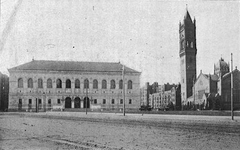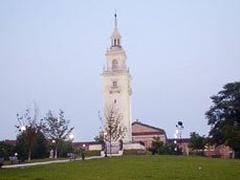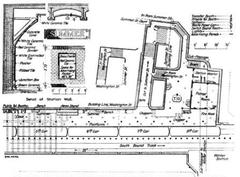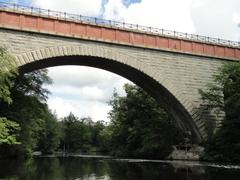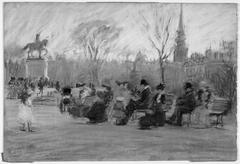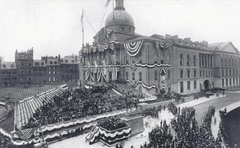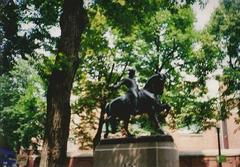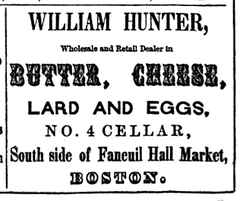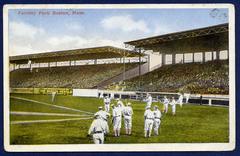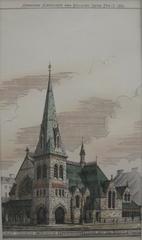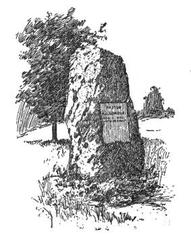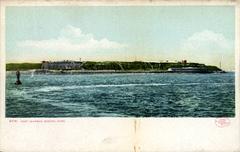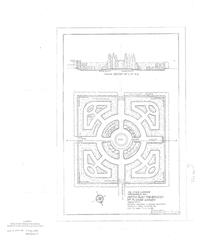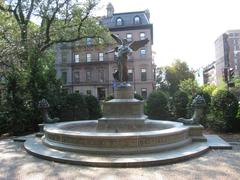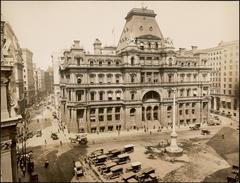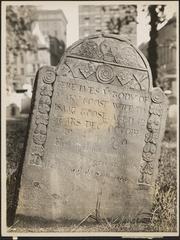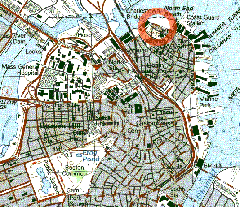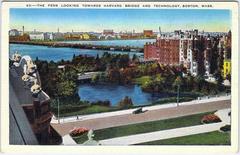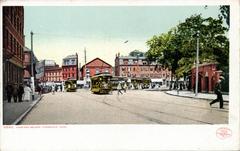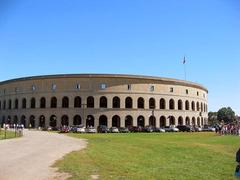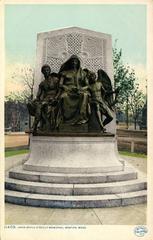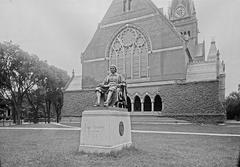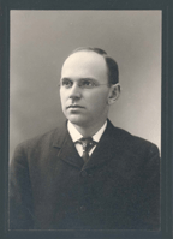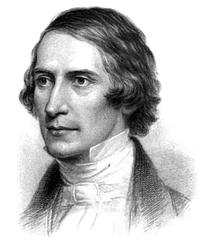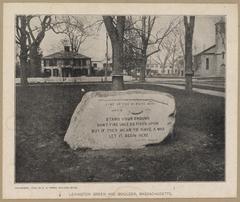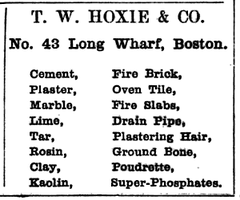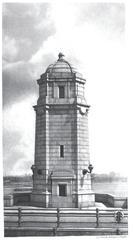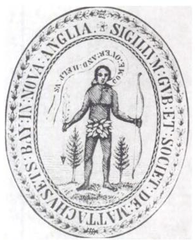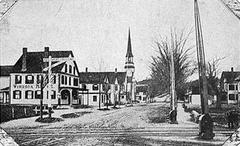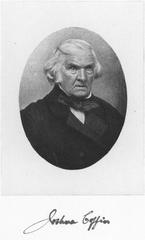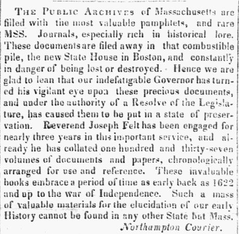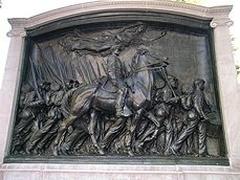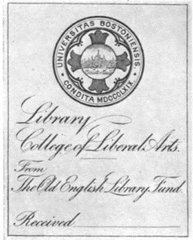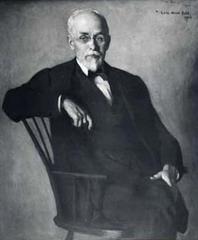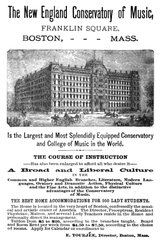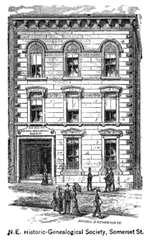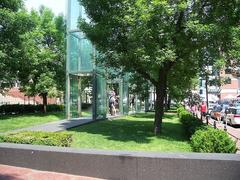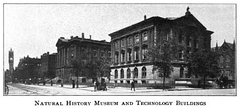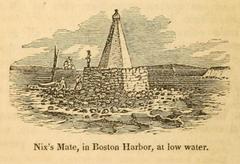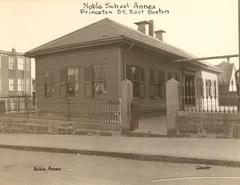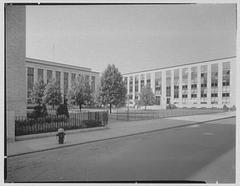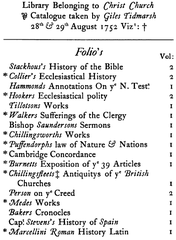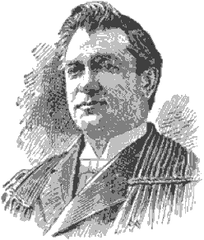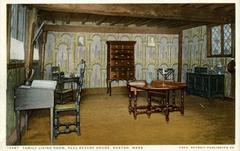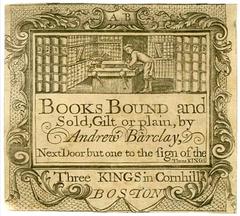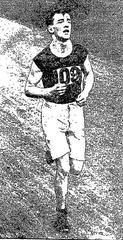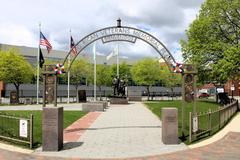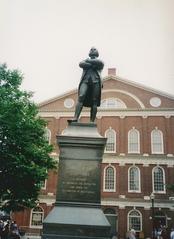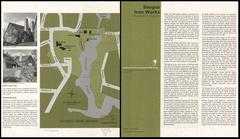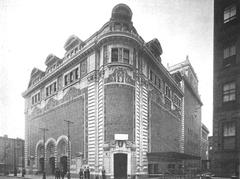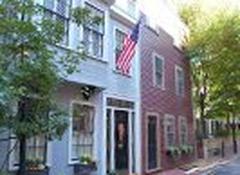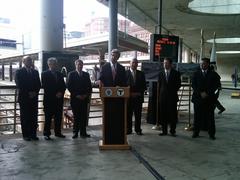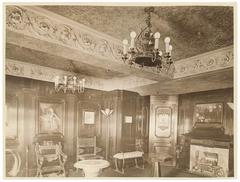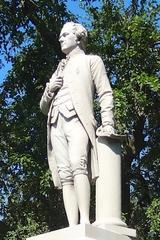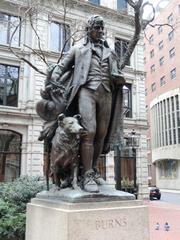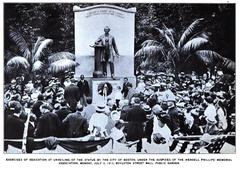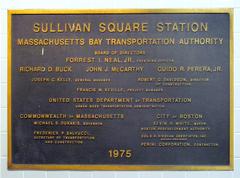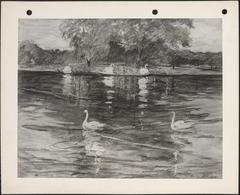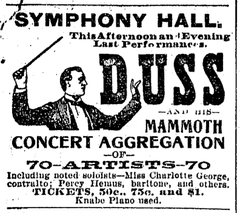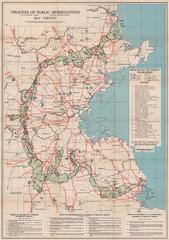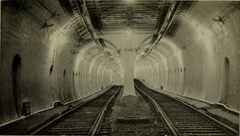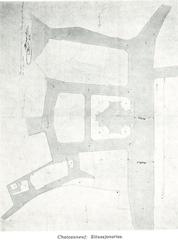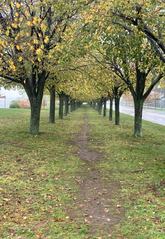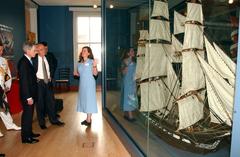Boston Women’s Memorial Visiting Hours, Tickets, and Historical Sites Guide
Date: 04/07/2025
Introduction
The Boston Women’s Memorial, located on the Commonwealth Avenue Mall in Boston’s Back Bay, is a landmark public artwork that honors three trailblazing women—Abigail Adams, Lucy Stone, and Phillis Wheatley. Since its unveiling in 2003, the memorial has stood as a symbol of gender equality, public recognition, and community engagement. By featuring life-sized bronze statues at street level, the memorial invites personal interaction and reflection, setting a new standard for commemorative art in Boston.
This guide provides a comprehensive overview of the memorial’s historical context, the stories of the women it celebrates, its artistic and cultural significance, and practical details such as visiting hours, accessibility, directions, and nearby attractions. Whether you are a history enthusiast, educator, or visitor seeking meaningful cultural experiences, the Boston Women’s Memorial offers inspiration and insight into the city’s ongoing narrative of progress and inclusion.
For more detailed information and the latest updates, visit the Boston Women’s Heritage Trail and the City of Boston’s official site.
Table of Contents
- Introduction
- Historical Background
- The Women Honored
- Artistic and Cultural Impact
- Visitor Information
- Visitor Experience & Tips
- Frequently Asked Questions (FAQ)
- Conclusion
- References and Further Reading
Historical Background
Origins and Purpose
Prior to the Boston Women’s Memorial, public monuments in Boston primarily honored male figures, with little representation for women’s significant contributions to history, literature, and social change. Recognizing this gap, the City of Boston commissioned artist Meredith Bergmann to create a memorial that would bring women “down off their pedestals,” both literally and figuratively. The result is a trio of life-sized bronze sculptures, placed at ground level and designed for interaction, on the Commonwealth Avenue Mall—a prominent, tree-lined promenade known for its collection of historic statues (Boston.com).
Significance of the Site
The memorial’s location, amidst statues of notable men along Commonwealth Avenue, asserts women’s rightful place in Boston’s historical narrative. The site serves as a point of reflection and as a gathering place for community events, such as Women’s History Month celebrations and Election Day tributes, where visitors leave flowers, notes, and tokens to honor the women commemorated (Boston.com).
The Women Honored
Abigail Adams (1744–1818)
Abigail Adams, wife of President John Adams and mother of President John Quincy Adams, was a powerful advocate for women’s rights and education. Her correspondence during the American Revolution, especially her 1776 directive to “remember the ladies,” laid early groundwork for the women’s suffrage movement (MassAttractions.com). At the memorial, she is depicted thoughtfully seated on a granite block inscribed with her words.
Lucy Stone (1818–1893)
Lucy Stone was a pioneering abolitionist and suffragist, and the first woman from Massachusetts to earn a college degree. She co-founded the American Woman Suffrage Association and was notable for retaining her maiden name after marriage, a radical act in her era (Boston.com). The memorial shows her standing, using the granite base as a desk, symbolizing her activism and literary work.
Phillis Wheatley (c. 1753–1784)
Phillis Wheatley was the first African American woman to publish a book of poetry in the United States. Enslaved as a child and brought to Boston, she overcame immense adversity to achieve literary acclaim, using her poetry to address themes of freedom and humanity (Boston.com). She is depicted seated in the act of writing, with excerpts of her poetry engraved nearby.
Artistic and Cultural Impact
Design Philosophy
Meredith Bergmann’s design emphasizes accessibility and active engagement. The statues are at ground level, encouraging visitors to approach, touch, and even sit beside the figures. Their granite bases function as both pedestals and workspaces, symbolizing the women’s ongoing intellectual and social labor (MassAttractions.com).
Symbolism and Inscriptions
Inscriptions of each woman’s words or poetry are engraved on the granite blocks, reinforcing their intellectual legacy. For example, Wheatley’s pedestal features:
“…in every human Breast, God has implanted a Principle, which we call Love of Freedom; it is impatient of Oppression, and pants for Deliverance … the same Principle lives in us.”
Community Engagement
The memorial is a hub for community gatherings, education, and activism. It is featured on the Boston Women’s Heritage Trail, which connects over 300 sites across Boston linked to women’s history. Initiatives like the Talking Statues project now provide audio guides, including contemporary Boston leaders reading historical texts, and accessibility features like Braille and Spanish-language options.
Visitor Information
Location
- Address: Commonwealth Avenue Mall, between Fairfield and Gloucester Streets, Back Bay, Boston, MA
Visiting Hours
- Open 24/7: As an outdoor public artwork, the memorial is accessible at all hours. Daylight visits are recommended for safety and the best viewing experience.
Tickets & Admission
- Free: No tickets or admission fees are required.
Accessibility
- Wheelchair Accessible: The memorial is on level, paved walkways suitable for mobility devices and strollers.
- Sensory Accessibility: The Talking Statues project offers audio and Braille features for visitors with visual impairments (BWHT).
Transportation & Parking
- MBTA: Green Line (Arlington or Copley stations) and several bus routes serve the area.
- Parking: Metered street parking is limited; several paid garages are nearby (e.g., Prudential Center Garage, Copley Place Garage).
Nearby Attractions
- Boston Public Library
- Copley Square
- Boston Public Garden
- Newbury Street shopping and cafes (MissTourist.com)
Visitor Experience & Tips
- Best Times to Visit: Spring and fall offer beautiful foliage and comfortable weather. Early mornings and late afternoons provide soft light for photography (Boston Central).
- Combine with Other Sites: The memorial is a short walk from Boston’s major historical and cultural landmarks. Consider walking the Boston Women’s Heritage Trail for a broader experience.
- Guided Tours: Organizations such as Boston By Foot and the Freedom Trail Foundation offer tours focused on women’s history (Freedom Trail Foundation).
- Amenities: No restrooms on-site; facilities available at nearby public spaces like Boston Public Library or local cafes.
- Accessibility: Paved, level paths are suitable for wheelchairs and strollers.
- Photography: The statues’ approachable design and the scenic setting make for excellent photo opportunities. Morning and afternoon light is best.
Frequently Asked Questions (FAQ)
Q: What are the Boston Women’s Memorial visiting hours?
A: The memorial is accessible outdoors 24/7, year-round.
Q: Is there an entrance fee or ticket required?
A: No, the memorial is free and open to all.
Q: Is the memorial wheelchair accessible?
A: Yes, paved paths and the flat Commonwealth Avenue Mall promenade provide wheelchair access.
Q: Are guided tours available?
A: Yes, many local organizations offer tours that include the memorial, especially during Women’s History Month. Advance booking may be required.
Q: What are some nearby attractions?
A: Boston Public Library, Copley Square, Boston Public Garden, Newbury Street, and other historic sites.
Q: Are pets allowed?
A: Pets on leashes are generally allowed on the Commonwealth Avenue Mall.
Q: Where can I find more information or assistance?
A: The Boston Visitor Center at Copley Square offers maps and guidance; in emergencies, dial 911.
Conclusion
The Boston Women’s Memorial is a landmark of public art and historical recognition, celebrating the enduring achievements of Abigail Adams, Lucy Stone, and Phillis Wheatley. Its innovative design and accessible location make it a vital destination for anyone exploring Boston’s cultural landscape. Open year-round and free to the public, the memorial offers visitors an opportunity to reflect on the progress of women’s rights and to engage with the city’s broader historical narrative.
To enrich your experience, consider combining your visit with a guided tour, exploring the wider Boston Women’s Heritage Trail, or using digital resources like the Audiala app for audio guides and current event updates. The memorial stands as a testament not only to the past but also to the ongoing journey toward equality and inclusion in public memory.
Plan your visit today and discover the stories that continue to shape Boston and the nation.
References and Further Reading
- People are visiting the Boston Women’s Memorial on Commonwealth Ave - Boston.com
- Boston Women’s Heritage Trail official website
- City of Boston Women’s Advancement Department
- Talking Statues project enriches Boston Women’s Memorial - WBUR
- MassAttractions.com, Boston Landmarks
- MissTourist.com, Things to do Boston
- TravelAwaits, Fascinating Walks on Boston’s Women’s Heritage Trail
- Boston Central, Guide to the Boston Women’s Memorial
- Meet Boston Visitor Guide
- Freedom Trail Foundation
